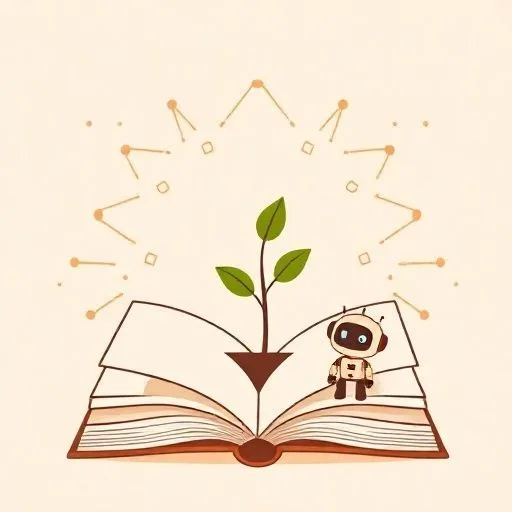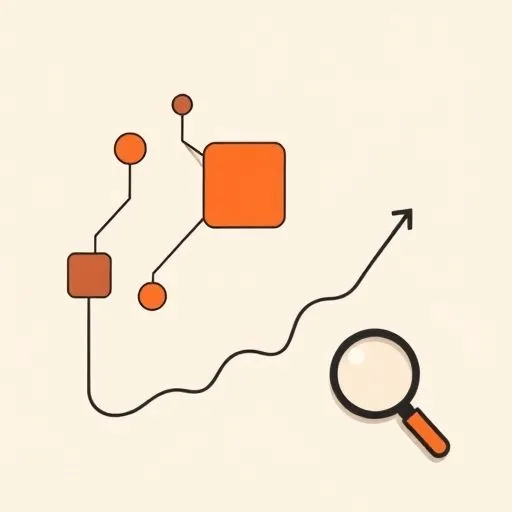
Earlier this month, something quietly revolutionary happened in the world of artificial intelligence. Anaplan, the AI-driven scenario planning platform, acquired Syrup Tech, an AI-native supply chain solution that helps retailers predict trends, manage inventory, and make decisions based on complex data. At first glance, this might seem like just another business merger, but when we look closer, we see a glimpse of the intelligent world our children will inherit—one where machines don’t just follow rules, but actively learn, predict, and recommend based on mountains of information.
How AI Is Learning to Understand Our World

When we think about artificial intelligence, our minds might jump to robots or talking computers. But the most profound AI applications often work silently in the background, making sense of patterns too complex for humans to detect. That’s what Syrup Tech’s technology does—it analyzes sales data, product images, social trends, even weather patterns to help retailers know what products to stock, where to place them, and how much to charge.
In the simplest terms, these AI systems are becoming incredibly good at prediction. As research shows, they can reduce forecasting errors by up to 45% compared to traditional methods while improving inventory turnover by 30-35%. For retailers, this means fewer empty shelves and less waste. For our children, it’s a preview of how they’ll interact with intelligent systems all around them.
What Skills Will Kids Need in the Age of AI?

As we watch these AI systems grow more sophisticated, a natural question arises: What skills will our children need in a world where machines can predict the future of inventory or consumer preferences? So, what’s the secret sauce for our kids? It’s NOT about trying to out-compute the computers! Instead, we’re talking about leveling up those amazing, uniquely human strengths we already know they’ve got!
Creativity, emotional intelligence, adaptability, and ethical reasoning become even more precious in an AI-augmented world. We already see children naturally developing these skills through unstructured play, storytelling, and navigating friendships—activities we should continue to prioritize even as screen-based learning tools become more appealing.
Perhaps the most important skill is learning how to learn. Unlike previous generations who might stay in one career for decades, tomorrow’s workers will likely adapt to multiple technologies throughout their lives. And that ability to jump in, figure out new tech lickety-split, ask awesome questions, and connect the dots across different fields? That’s going to be pure gold!
Will AI Help or Replace Our Children’s Future?

There’s often anxiety about technology taking over jobs, but the reality is more nuanced. The AI systems being developed aren’t typically replacing human decision-makers—they’re amplifying their capabilities. Anaplan and Syrup Tech’s technology works best when guiding human experts rather than making final decisions on its own.
This collaborative model mirrors how we think about technology in family life. Screens can be wonderful tools for learning and connection, but they’re at their best when they enhance our time together rather than replace it. The same principle will apply to our children’s future workplaces: systems will handle the heavy data lifting, while humans bring empathy, values, and context.
You know, it’s just like when we’re figuring out dinner! We might check out a new recipe online – that’s the AI – but ultimately, we’re the ones deciding if it’s a ‘go’ based on what our daughter loves and what we have in the fridge. That’s our family’s special blend!
That balance—using technology as a tool while maintaining human agency—is exactly what our children will need to master.
How Can Parents Help Kids Understand AI?

As parents, we’re often the first guides for our children in understanding the complex world they’re growing into. When it comes to AI, this doesn’t mean we need to become technical experts ourselves. Instead, we can nurture curiosity and help children develop mental models for how these systems work.
Start with simple analogies. You might explain that the AI at the store is like a super-powered friend who remembers what everyone likes and suggests presents at birthdays. Notice how it taps into patterns it has learned, just like children learn that certain weather means bringing a jacket to the park.
Everyday moments become learning opportunities. When you’re watching how baking soda and vinegar create a volcano, you’re exploring cause and effect—the same principle that underlies how these AI systems learn from data. When you’re adjusting a recipe based on taste, you’re demonstrating feedback loops, another key concept in machine learning.
Most importantly, we can model thoughtful engagement with these technologies. When we use navigation apps or streaming recommendations, we can talk about how these systems work, what they get right, and where they sometimes miss the mark. This builds literacy without creating unnecessary fear or undue admiration.
How Can We Prepare Kids for an AI-Enhanced Future?

As we stand at the beginning of this AI-augmented future, it’s easy to feel uncertain. The technology is advancing rapidly, and the applications seem endless. But in our role as parents, perhaps the most helpful perspective is to view these changes not as a threat to childhood, but as another layer of the complex, beautiful world our children will inherit.
The foundation we’ve always provided—curiosity, resilience, kindness, and adaptability—prepares children for whatever comes next. These human qualities don’t become less valuable in an AI world; they become more essential as guides for using these powerful tools wisely and ethically.
Consider how the simplest family activities build the very skills that will help our children flourish alongside intelligent systems. A nature walk builds observation skills. Family conversations develop emotional intelligence. Open-ended play fosters creativity. These aren’t just pleasant pastimes—they’re the training ground for an AI-augmented future.
So, as we see these AI brains getting smarter and smarter at predicting things, let’s take a HUGE breath of relief! The most powerful prediction we can make? That our kids, with their awesome resilience, boundless curiosity, and hearts full of kindness, will absolutely shine, finding their own amazing connections in the incredible world waiting for them!
Source: Anaplan Extends AI Leadership with the Acquisition of Syrup Tech, GlobeNewswire, 2025-09-09
